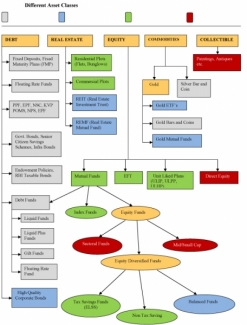On April 9, 2017 Major Nitin Leetul Gogoi tied a local youth to the bonnet of a jeep who was throwing stones in Badgam. The errant youth was used as a shield against stone pelters during a counter insurgency operation. Major Gogoi was surrounded by a huge crowd of more than 1000 people at the time of polling in the area. He urged the crowd to disperse, but they did not do so and instead started stone pelting. A petrol bomb was also thrown. The moment Major Gogoi tied the youth in front of his jeep, stone pelting stopped immediately. With this idea, he saved many people’s lives. He could then easily rescue a number of polling officials and others civilians also.
Major Gogoi was accountable for maintaining law and order in that area of Kashmir. He did his job beautifully. The social media was full of praise and compliments for Major Gogoi. He became an instant hero for all the young people with national fervour in their heart. But this innovative action by the Army Major was severely criticized by the friends of terrorists and some spineless politicians in the name of violation of human rights. The Major could act in a way he felt most suitable to control the stone pelting mob as he had the authority from his superiors.
Nobody can be held accountable for non-performance if you don’t give him or her the due authority. Accountability and Authority go hand in hand. They are the two wheels of the same bicycle. The one without the other is no good and of no use. This is the mistake that many managers and leaders do. They give a lot of responsibility to their juniors and hold them accountable for achieving results. But they hold the authority in their own hands instead of passing on to those responsible for achieving the results.
Authority is the right or power assigned to an individual to enable him/her to carry out the duties for which the individual is accountable to his/her boss. Authority gives the freedom to take timely decisions for the benefits of the organization. If you are accountable for the performance of say 200 employees under you, then you must have the authority to give them the rewards and recognition, obviously within certain boundaries that adhere to the company policies. Similarly, you should have the authority to take disciplinary action against some erring employee out of these 200 employees under you, if required at any time.
A good number of organizations suffer from low productivity, absenteeism and indiscipline despite having very good supervisors and managers. This happens due to the failure of leadership that has set the targets for their managers and they hold them accountable for meeting them. But the conservative leadership didn’t pass on the authority to their managers. If you are responsible for the smooth functioning of an assembly line on the shop floor for 24 by 7, then you should have the authority to get a part of the machinery replaced if that is causing recurring break downs. Here again, the authority can be given for an expenditure up to a certain level and then the level is raised for expenses beyond your powers. And these powers of yours as manager for expenditure should also be not that low that every now and then you have to raise the level even for minor repairs. At the same time the authority to spend can’t be that high that the mangers start misusing their power given to them in the name of better efficiency and effectiveness.
Authority and Accountability are the two associative terms on which any business enterprise or any organization functions. For any organization to work efficiently, there has to be an appropriate balance between the two. Authority is rights assigned to a team leader, whereas accountability is the performance using those rights. Authority and Accountability work in a parallel arrangement for successful working of the business enterprise. They both are allocated to a person after he/she has gained adequate experience, knowledge and skills in the respective field.
Remember that authority in the wrong hands can cause huge losses to organizations. We keep hearing cases of unimaginable levels of corruption not only in our country but across the globe. This happens when people with low ethics and low moral values occupy high offices and they use their authority in blatant manner for their own selfish motives and forget that they are also accountable to someone for their behaviour.
So, there should be sufficient checks and balances everywhere such that the dishonest cannot take the system for a ride in the name of authority to perform their functions. At the same time, an honest, dynamic and devoted person should not be deprived to perform his/her normal duties for which he/she is accountable and is being paid for.



















